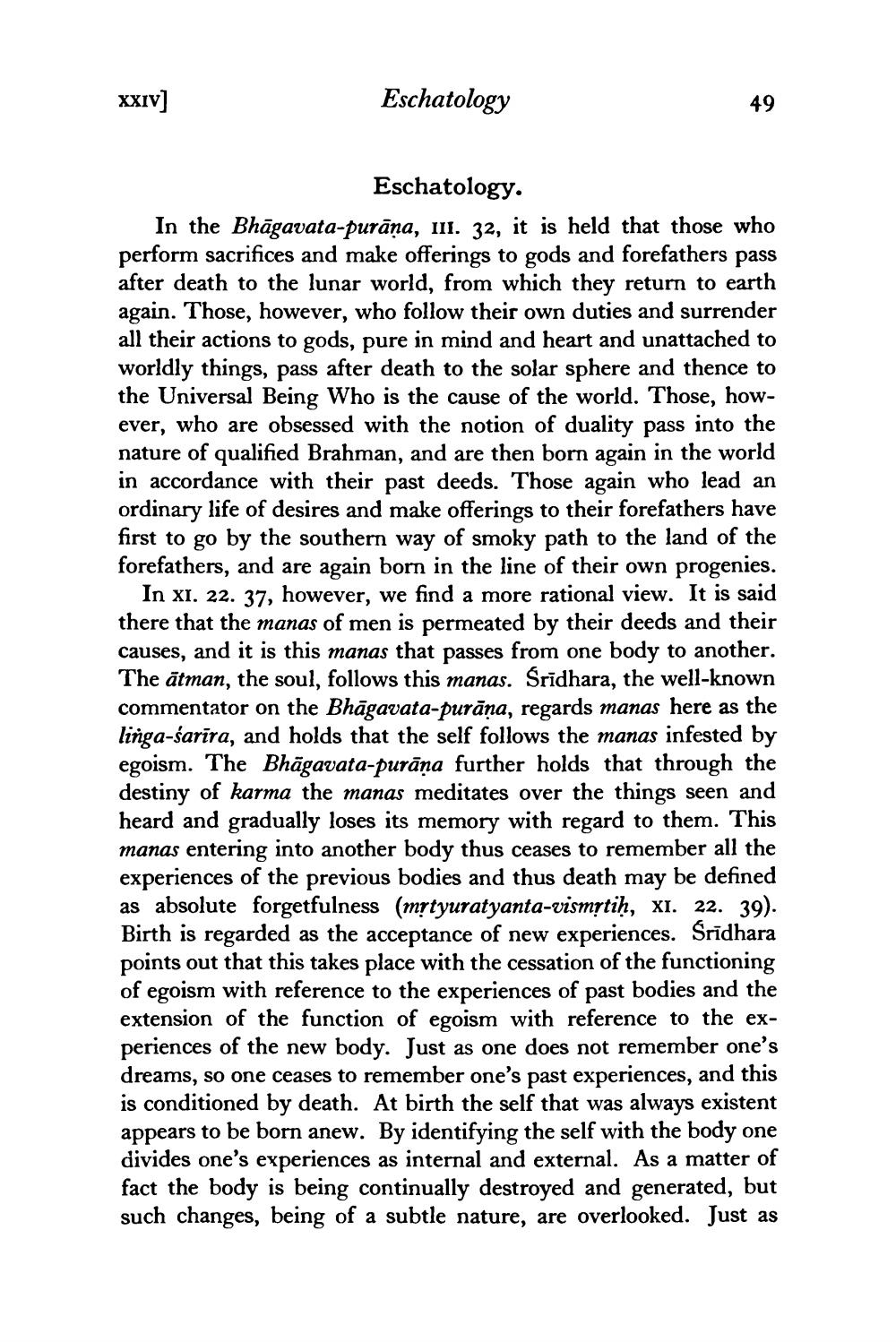________________
XXIV
Eschatology
49
Eschatology. In the Bhāgavata-purāna, 11. 32, it is held that those who perform sacrifices and make offerings to gods and forefathers pass after death to the lunar world, from which they return to earth again. Those, however, who follow their own duties and surrender all their actions to gods, pure in mind and heart and unattached to worldly things, pass after death to the solar sphere and thence to the Universal Being Who is the cause of the world. Those, however, who are obsessed with the notion of duality pass into the nature of qualified Brahman, and are then born again in the world in accordance with their past deeds. Those again who lead an ordinary life of desires and make offerings to their forefathers have first to go by the southern way of smoky path to the land of the forefathers, and are again born in the line of their own progenies.
In XI. 22. 37, however, we find a more rational view. It is said there that the manas of men is permeated by their deeds and their causes, and it is this manas that passes from one body to another. The ātman, the soul, follows this manas. Srīdhara, the well-known commentator on the Bhāgavata-purāņa, regards manas here as the linga-śarīra, and holds that the self follows the manas infested by egoism. The Bhāgavata-purāņa further holds that through the destiny of karma the manas meditates over the things seen and heard and gradually loses its memory with regard to them. This manas entering into another body thus ceases to remember all the experiences of the previous bodies and thus death may be defined as absolute forgetfulness (mýtyuratyanta-vismộtiḥ, XI. 22. 39). Birth is regarded as the acceptance of new experiences. Sridhara points out that this takes place with the cessation of the functioning of egoism with reference to the experiences of past bodies and the extension of the function of egoism with reference to the experiences of the new body. Just as one does not remember one's dreams, so one ceases to remember one's past experiences, and this is conditioned by death. At birth the self that was always existent appears to be born anew. By identifying the self with the body one divides one's experiences as internal and external. As a matter of fact the body is being continually destroyed and generated, but such changes, being of a subtle nature, are overlooked. Just as




